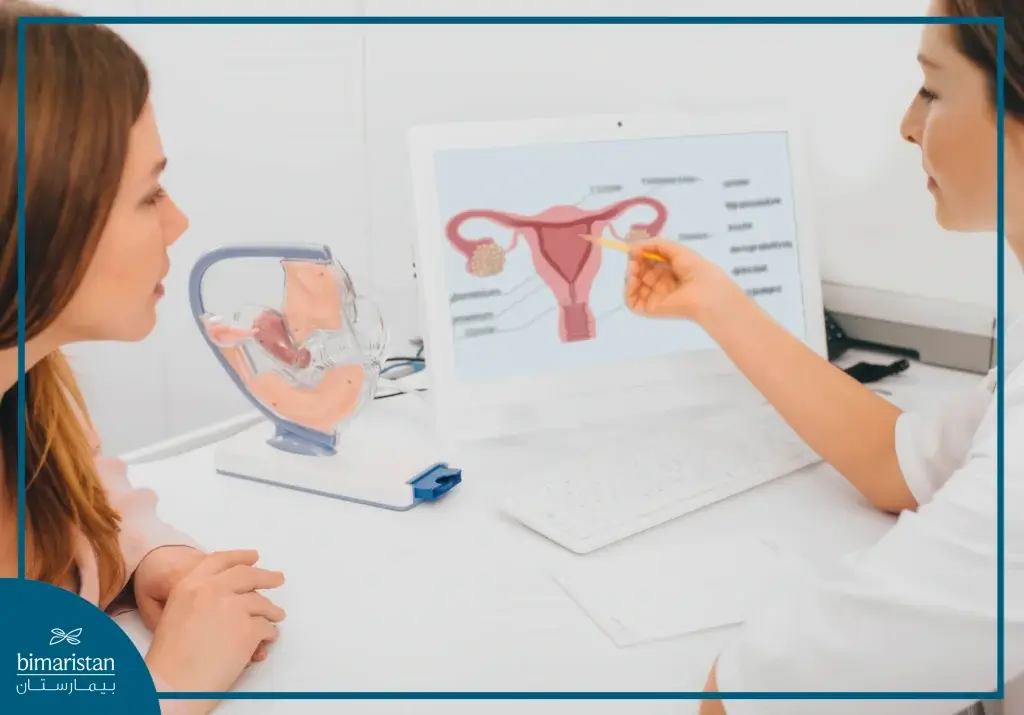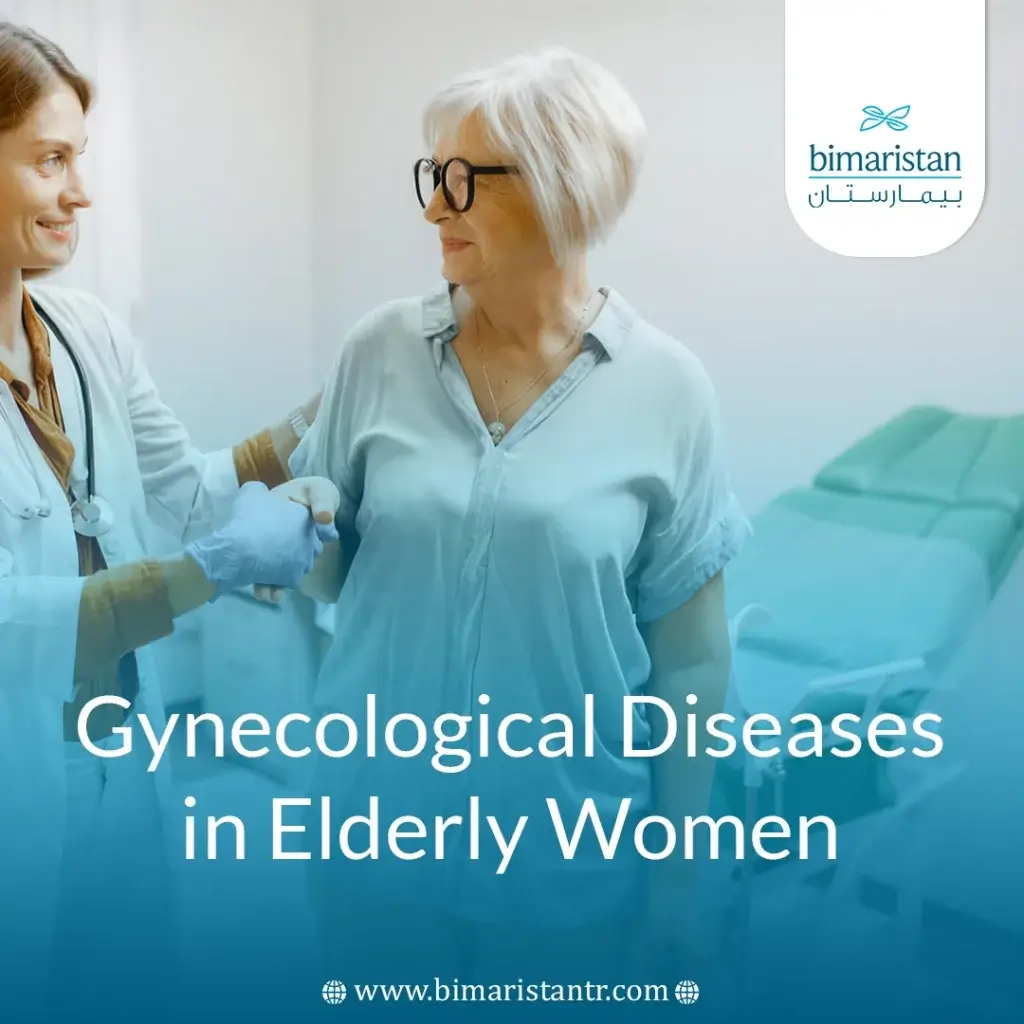As women age, they face many health challenges that may affect their quality of life, and one of the most prominent of these challenges is common gynecological diseases in elderly women, as the hormonal and physiological changes that occur after menopause may increase the likelihood of experiencing several issues related to the reproductive system.
In this article, we will address the most prominent common gynecological diseases in elderly women, along with their symptoms, risk factors, and how to prevent and manage them effectively to preserve women’s health and maintain their quality of life.
What are the most common gynecological diseases in elderly women?
After menopause and as women age, some women may develop many common gynecological diseases in elderly women, and some of the most common of these diseases in older women are:
- Vulvovaginitis
- Genital prolapse
- Bleeding after menopause
- Bladder function disorders
- Uterine and ovarian cancer
Symptoms that women of advanced age should watch out for
Although some symptoms may be part of aging, when any abnormal changes appear in a woman’s body, it is necessary to seek medical advice for her condition and follow up if necessary, including these changes:
- Abnormal vaginal bleeding after menopause
- Chronic pain in the pelvic area or lower abdomen
- Changes in the menstrual cycle, especially if the woman is in or after menopause
How to diagnose common gynecological diseases in elderly women?
Symptoms of many common gynecological diseases in elderly women usually don’t show up until advanced stages, so an annual gynecological exam is highly recommended. A list of gynecological exams includes the following:
- Pelvic ultrasound: Used to evaluate the uterus, cervix, ovaries, fallopian tubes, and bladder.
- Laparoscopy of the pelvis: It is done to examine the pelvic organs.
- Hysteroscopy: To investigate, diagnose, and treat the cause of the issues.
- Papanicolaou test (Pap smear): To detect cervical cancer
- Human papillomavirus (HPV) test: Used to look for cervical infections that are more likely to turn into cancers.
- Colposcopy: When abnormalities are noted during a Pap smear, colposcopy can help confirm and diagnose potential issues.
- Cervical biopsy: This procedure is usually a follow-up test to diagnose cervical tissue suspected of having cancer or pre-cancerous cells. There are several types of cervical biopsies: Colposcopic biopsy, cervical curettage (endocervical curettage), and cone biopsy
- Endometrial biopsy: Performed to look for abnormalities, screen for endometrial cancer, and look for possible causes of post-menopausal bleeding or abnormal bleeding.
- Cystoscopy for women: To check for tumors, kidney stones, or cancer.
- Other examinations: HIV and STD testing, high blood pressure and cholesterol screening, diabetes screening, and osteoporosis screening.
Treating the most common gynecologic conditions in older adults
The treatment of common gynecological diseases in elderly women varies depending on the type of disease:
- Hormonal changes: Hormone therapy helps relieve menopausal symptoms such as hot flashes and vaginal dryness.
- Uterine prolapse: Treatment is done using Kegel exercises or surgery in advanced cases.
- Cancer: Treatment includes surgery, chemotherapy, radiation, or hormone therapy, depending on the case
- Vaginal and urinary tract infections: Treatment includes antibiotics and vaginal ointments.
- Ovarian cysts: Monitored or treated with surgery if they are causing health issues.
- Pelvic infections: Treated with antibiotics or, in severe cases, surgery.
Tips for preventing common gynecological diseases in elderly women
Although common gynecological diseases in elderly women are on the rise, some tips can help prevent or minimize them.
- Maintain personal hygiene: Maintaining personal hygiene is the first step in preventing gynecological issues
- Maintain a healthy weight: This can be prevented by maintaining a healthy weight through regular exercise and a balanced diet.
- Gynecological exams every 6 months: Gynecological exams are recommended for women over the age of 21 to monitor reproductive and sexual health, and help in the early detection and proper diagnosis of any gynecological issues.
- Avoid using harsh chemicals: Always remember that the vagina has a natural cleaning system, and using harsh chemicals to clean it can destroy the beneficial bacteria. You can use gentle soap or just water to clean your vagina regularly to avoid gynecological issues in older women.
- Don’t ignore any abnormal symptoms or bleeding: Abnormal bleeding or painful menstrual cramps are common issues women face, but remember that they can be early signs of some serious gynecological disorders.
- Taking care of your overall health also contributes to the health of your reproductive system. So, you should optimize your lifestyle to prevent any health issues, including gynecological issues, such as reducing stress, refraining from smoking, and maintaining healthy sleep patterns.
Prevention is better than a cure, and the above tips will help you reduce the risk of common gynecological diseases in elderly women; however, do not hesitate to contact your gynecologist to discuss any abnormal symptoms you experience.

In conclusion, the treatment of common gynecological diseases in elderly women requires special attention due to the physical and hormonal changes that occur with age. With early diagnosis and proper treatment, many of the health issues that women may face at this stage can be overcome, and paying attention to general health, following up on regular check-ups, and dealing with psychological and physical changes in a positive way will help maintain quality of life and better health. Remember that prevention and self-care are the key to maintaining your health at any age.
Sources:
